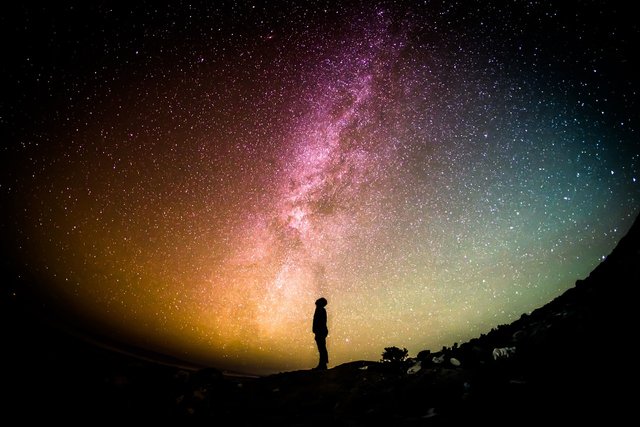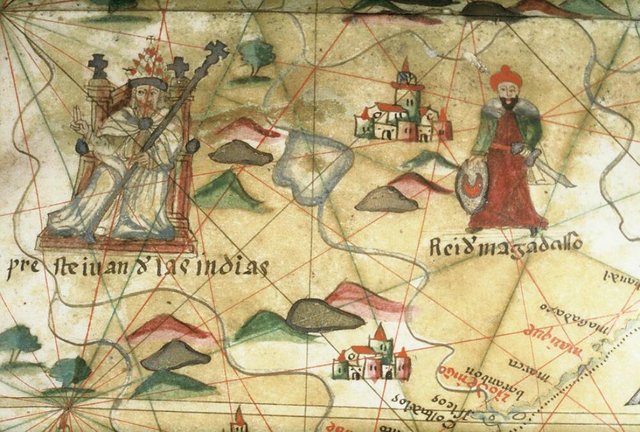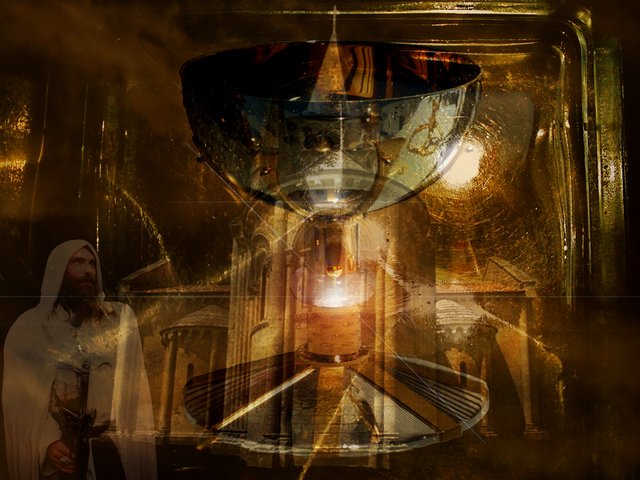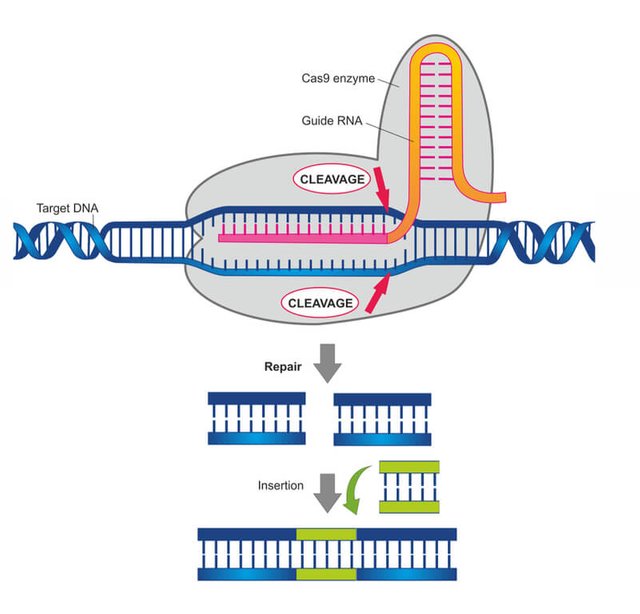The History of Immortality: Searching for Eternal Life, Part II: Medieval to Modern Times

This is Part II, a continuation of Part I of this post. If you have not yet read that part, please begin by doing so. The link is here: https://steemit.com/history/@donkeypong/the-history-of-immortality-searching-for-eternal-life-part-i-ancient-world
In Part I of this post, we covered some highlights of the search for immortality from the ancient world. Now, we turn to the Middle Ages and beyond. From Prester John to the Arthurian legends to Ponce De Leon, these centuries with rife with stories of great treasure and immortality awaiting the explorer who could find them. Unfortunately, most such stories have proven to be fictional, but they still affected peoples’ lives and the stories themselves remain quite interesting.
Prester John (12th Century)
Prester John was a legendary priest-king who ruled a Christian kingdom somewhere in the Orient or Africa. The name “Prester” probably came from Presbyter or Priest. In 1165, a letter was circulated that Prester John supposedly had written to the Byzantine Emperor. He said he ruled over the Amazons and other people, that he was wealthy, that no one in his kingdom ever sinned, and that he had a watch tower manned by 3000 men which could see into every part of his kingdom. There were other tales also, both in the letter and supplied by popular culture, including the fact that he had rivers of gold and a fountain of youth.

During the time of the Crusades, it was a useful recruiting tool to mention that there was a Christian king battling the infidels. The kingdom of Prester John was said by some to be in Ethiopia, Syria, India, China, or nearly anywhere in between. While many went in search of the Prester with his gold and fountain of youth, no one could agree on where the kingdom was and no one ever found it. Until the 15th century, John’s (undoubtedly fabricated) letter continued to be translated and distributed as popular reading material. It was not until the 17th century that Europeans finally agreed there was not (nor probably ever had been) a Prester John.
The Holy Grail (first appeared in a story c. 1190)
Chretien de Troyes, a poet and troubadour, was a major contributor to the Arthurian legends. There very little historical evidence of any king named Arthur and the stories all came centuries after he would have lived. Chretien appears to have invented the character of Lancelot, for instance. He also was the first to ever mention the Holy Grail, the cup/bowl/vessel from which Christ drank at his final meal with his disciples. The first time the Grail tale appeared in history was in an unfinished romance tale called Perceval by Chretien in about 1190. From there, during the time of the Crusades, others ran with these legends and created many more interesting stories.

An artist's depiction of the Holy Grail. Creative Commons via Flickr.com by Alice Popkorn.
One of the additions to the lore was that the Grail would bestow immortality on those who drank from it. This was added in much later stories and may have come from Celtic legends of a magic cauldron that could bestow everlasting life on anybody. It took hundreds of years for these Grail stories to be combined with the Arthurian legends and for the vessel to take on the properties of a fountain of youth. The main Arthurian account was Morte D’Arthur, published in the 1400s by Thomas Malory.
The Philosopher's Stone (13th century)
Alchemists around the world have long sought the philosopher’s stone. The stone is some secret substance that can turn base metals into gold. One reason for its importance is that the stone purportedly can produce the elixir that grants everlasting life. While there were earlier roots, going back to Plato, the first alchemist credited with discovering the philosopher’s stone was Albertus Magnus in the 13th century. If so, he did not benefit from the elixir, since he died shortly thereafter. Taoist mythology also includes an elixir of immortality, which is made from Cinnabar (a mercury ore), gold, and other ingredients. Unfortunately, consuming heavy metals is not a healthy practice.

Juan Ponce De Leon (1474-1521)
Juan Ponce De Leon sailed on one of Christopher Columbus’ ships and became an early governor of Puerto Rico. His name is synonymous with searching for the fountain of youth. However, modern historians tell us that there is no real evidence that his explorations were for that purpose. There certainly were rumors of vast quantities of gold and a fountain of youth in the New World, which helped justify his commission as a colonial governor there, but history tells us that Ponce’s explorations, including his ‘discovery’ of Florida, were not specifically linked to any search for immortality. Nevertheless, when many people think of the fountain of youth, Ponce De Leon’s name comes up, because many of us learned in school (rightly or wrongly) that he dedicated his later life to finding it.
Modern Potential for Immortality
Today, there is a major push toward extending human life. Billionaires are financing projects with particular potential for attacking limiting factors such as cancer. From the discovery of a jellyfish that can reverse its own aging to gene-editing through CRISPR there are plenty of possibilities. For now, eternal life as a result of these technologies remains an unknown number of years into the future. Perhaps the most promising of these is the possibility of uploading one’s mind into the cloud, which would alleviate the need to make the body last forever.

CRISPR illustration. Source: labiotech.eu.
One front for life extension is genome editing and engineering. For example, the CRISPR/Cas9 system allows a cell’s genome to be cut. Genes can then be added or removed. This technology developed much more quickly than many experts had forecasted and researchers continue to make new discoveries. While gene editing and engineering raises some big ethical questions, it also provides huge possibilities for improving the body’s ability to live longer.
Another interesting discovery with potential applications in this field is the immortal jellyfish, Turritopsis dohrnii. These jellyfish have demonstrated the ability to reverse the aging process in that adult jellyfish can revert to the polyp stage, a younger stage of life. While it might be eaten at sea by another creature or may die of disease, the process of reversing the life cycle can go on indefinitely, so theoretically the animal could keep regenerating and live forever. The ability to cheat death makes this jellyfish unique in the animal world and would seem to position it as an important area for further study. But surprisingly, little research has been done on these animals because they are almost impossible to culture in a laboratory. There is only one scientist in the world (Dr. Shin Kubota at Japan’s Kyoto University) who does so successfully; taking care of his jellyfish colony is nearly a full-time job.

Do We Really Want It?
Do we really want to live forever? And if we live forever, are we living old or living eternally young? Let’s not forget the somewhat cautionary tale of Tithonus, Eos’s mortal lover in ancient Greece, who was given eternal life by the god Zeus. However, Eos had forgotten to ask for eternal youth for him also. Tithonus lived forever, but when he became stuck in old age, he could not lift or move his limbs. In Jonathan Swift’s Gulliver’s Travels, the Island of the Immortals features humans who live forever in old age, becoming demented and dangerous.

Think also of Mary Shelley’s story The Mortal Immortal, where the main character drinks an elixir, but finds that immortality is a living hell where everyone he loves must grow old and die around him. In The Immortal by Jorge Luis Borges, a whole society gains immortality, but in doing so, its people lose all motivation to act and to live. There are countless other works of science fiction which build upon similar themes.
And perhaps that raises the question that even if the human mind (and perhaps body) are made to last forever, is the human psyche able to continue growing and developing also, or is it designed just for one lifetime? Does death give life a certain meaning that disappears when we cheat death? We may not know the answers to these questions until we can live forever.
So finally, we return to the Epic of Gilgamesh and some advice he was given as he failed in his quest for immortality. Siduri, an innkeeper in the land of the Gods, gives him this advice. Her words are probably as useful now as they were then.
“When the Gods created mankind, they also created death. They held back eternal life for themselves alone. Humans are born, they live and then they die. This is the order the Gods have decreed. But until the end comes, enjoy your life. Spend it in happiness, not despair.”
Good advice for mortals.

References:
https://en.wikipedia.org/wiki/Immortality
https://www.seeker.com/seeking-immortality-so-have-others-1767387860.html
https://www.wired.com/story/the-responsibility-of-immortality/
https://www.nytimes.com/2012/12/02/magazine/can-a-jellyfish-unlock-the-secret-of-immortality.html
https://en.wikipedia.org/wiki/Khidr
https://en.wikipedia.org/wiki/Holy_Grail
http://www.talkativeman.com/herodotus-and-the-fountain-of-youth/
https://www.theodysseyonline.com/9-objects-immortal
https://en.wikipedia.org/wiki/Immortality_in_fiction
https://en.wikipedia.org/wiki/List_of_people_claimed_to_be_immortal_in_myth_and_legend
http://www.rc.umd.edu/editions/mws/immortal/mortal.html
https://en.wikipedia.org/wiki/CRISPR
Coulter-Harris, Deborah M. Chasing Immortality in World Religions (McFarland 2016)
@donkeypong, That's another biggest learning part no two blog. I love and prefer to find historical things like as Greek and Egypt history. Some of Pyramids in Egypt has hidden mystery stories. Lot of movies created like Mummy.
I heard before some of Middle Ages stories. But don't know everything. I learnt something of Prester John before and very interesting statement he told and you mentioned it nicely here.
Look at above. How about his thought and believe of him. Peoples believe about himself better rule. But how they believe Immortality? Lot of contents came from their religious leaders and Dictatorship. And they totally think they're legends then need to stay live everyday. Another interesting story created Juan Ponce De Leon. You mentioned better about him.
Of course, we can see it from current society. But with some technological & chemical products not deserve to our body everyday. Need maintain everyday.
I think better solution is keep your mindset and brain very clearly and positively. Then you don't need to be sad forever. Thanks your Top class blogs Tom.
Lots of mythology probably was created and developed so that it supported certain institutions (monarchs, churchs, etc.). It's just fascinating that people have believed parts of this for so long. Well, it often continues today that people will believe almost anything, so I guess we should not be surprised.
In the bible, after the fall of man, Adam and Eve were driven out of the garden of Eden. In the garden of Eden was the tree of life, and I think God didn't want man to live forever with sinfulness and how bad it was going to get. Adam had no idea how bad earth was going to become.
Also, in the bible, the age of man is seen to reduce drastically after the flood. It has been said that it was after the flood that flesh became a main diet, as most of the plants were dead.
I don't want to live forever, not in such a world filled with pain, abuse and deep wickedness. I just hope to die when I am at peace with God and man, and when I have fulfilled my purpose.
The story of the Garden of Eden also has parallels with some of these other ideas, including the notion of the immortal fruit.
Hello @donkeypong this portrait was a gift for you i posted it last week but unfortunately you didn't saw it that is why i decided to upload it for you here.

another thing i saw you help the minnowes im a minnow need some help how can i join your upvote trail i need it the must i have a good content and good blog you can take a look and judge.
https://steemit.com/art/@soufianechakrouf/portrait-for-donkeypong
Thanks for the picture.
I remember when I was a kid and we were learning about the explorers. I was always so intrigued by his quest for the fountain of youth. Some of the legends you have brought up have made for great stories and tales. I really like how some of them have transcended time and still show up in modern forms of media. If you know nothing about the history of the actual topic you still might have read about the Philosophers stone in a Harry Potter book or bee amused by Monty Pythons Quest for the Holy Grail. As long as we are human and we grow old I think that we will always be fascinated with the idea of staying young and eternal life. It would be interesting to see as we evolve, what new ways we find to further this quest. Fun post.
That's a great point. These myths and stories get often come to us through secondary tales like HP and Monty Python. True or fanciful, they are a big part of our culture's mythology. And that's proof people enjoy them, sometimes laugh at them, and keep finding new opportunities to tell them in fresh ways.
So if the Brain could be uploaded into " The cloud"?, I assume the person could now truthfully be called an Airhead?
Love the amount of research you have done on this interesting 2 part, post.
Yes, supposedly you'll be able to have AI-type conversations with your grand grandparents someday. Thanks for the comment!
there are many stories that are regarded as fictitious, what else about the legendary treasure in the community, in Indonesia a lot of legendary fictive history of mermaid stories and many kinds
Ah, mermaid stories! I didn't even have time to get into those. People seem to enjoy good stories and where there is treasure, eternal life, and mermaids, what can go wrong? :)
This is a truly controversial and complex issue. Does a person need immortality? Would it not mean a complete lack of meaning in existence. The new day will not be perceived as something amazing and beautiful. There is a good phrase "be Afraid of your desires, they can come true." And the desire to be immortal, in my opinion, is the desire that is better not to come true. The consequences really seem to me more negative than positive. Although, as far as I know, many people now sign a contract to freeze their bodies, hoping that over time humanity will find a way to revive their bodies and return to eternal life.
"Be careful what you wish for" is another version. Yes, it may be something we don't need.
I love the way you concluded this piece. The thought of death makes man to apreciate life and if death is taken out of the equation, life might lose its meaning. On a brighter note, cracking the code of immortality does not necessary mean man won't die, it might simply mean we won't grow old like the what we see around. Disease, hunger and pestilence, wars, assasination and the likes would still be in practice. A nuclear war can still wipe out virtually all living things and at the end of it all, we cant trully be immortal.
Thanks for the lovely article.
Yes, lots of contrasts there.
I got New experience from your post. Thanks for share this type of history. I want get more historical post and want to make a knowledge about history. I like since fiction so much. So if possible please make a post about since fiction. Thanks
Some people think that life is precious because it is short. They compare it to gold, which exists only in small quantities. According to them, if gold was found everywhere, it would lose its value. Nevertheless, that would not detract from its beauty. The same is true of life.
To live forever is, one might say, to breathe in abundance. For the sailors of a submersible in trouble, nothing is more precious than the air. But according to you, once saved, would they have the ingratitude to complain about being able to breathe again at full lungs? Certainly not !
We too, like these sailors, can be saved, but with the even better prospect of living forever.